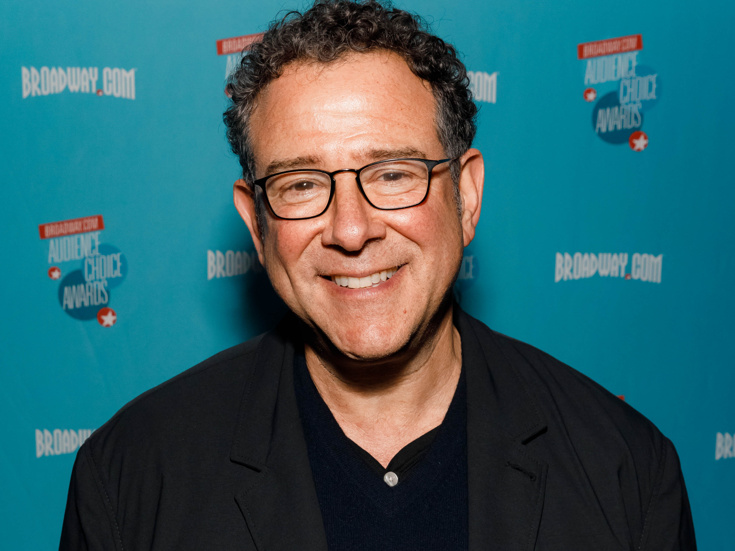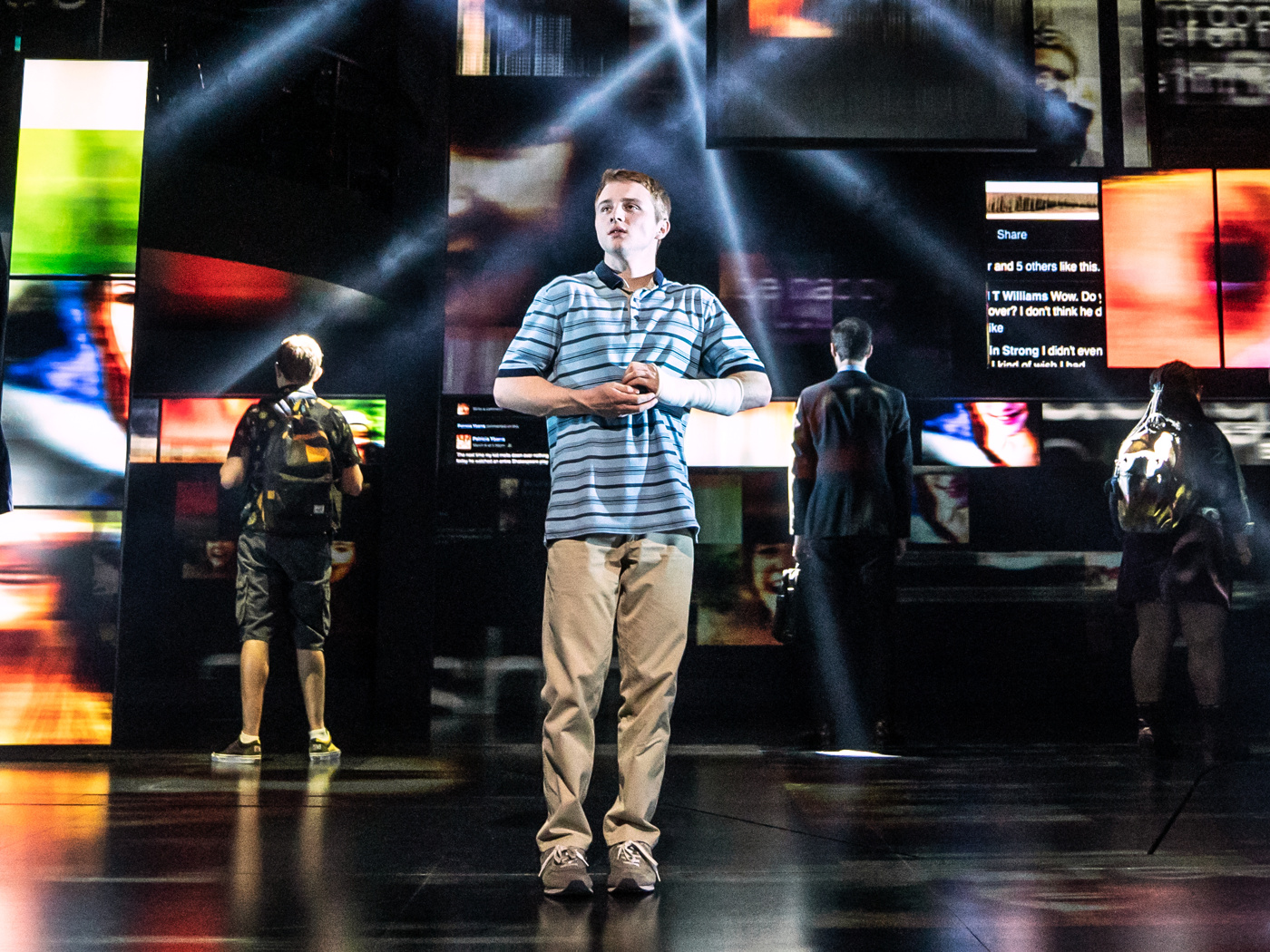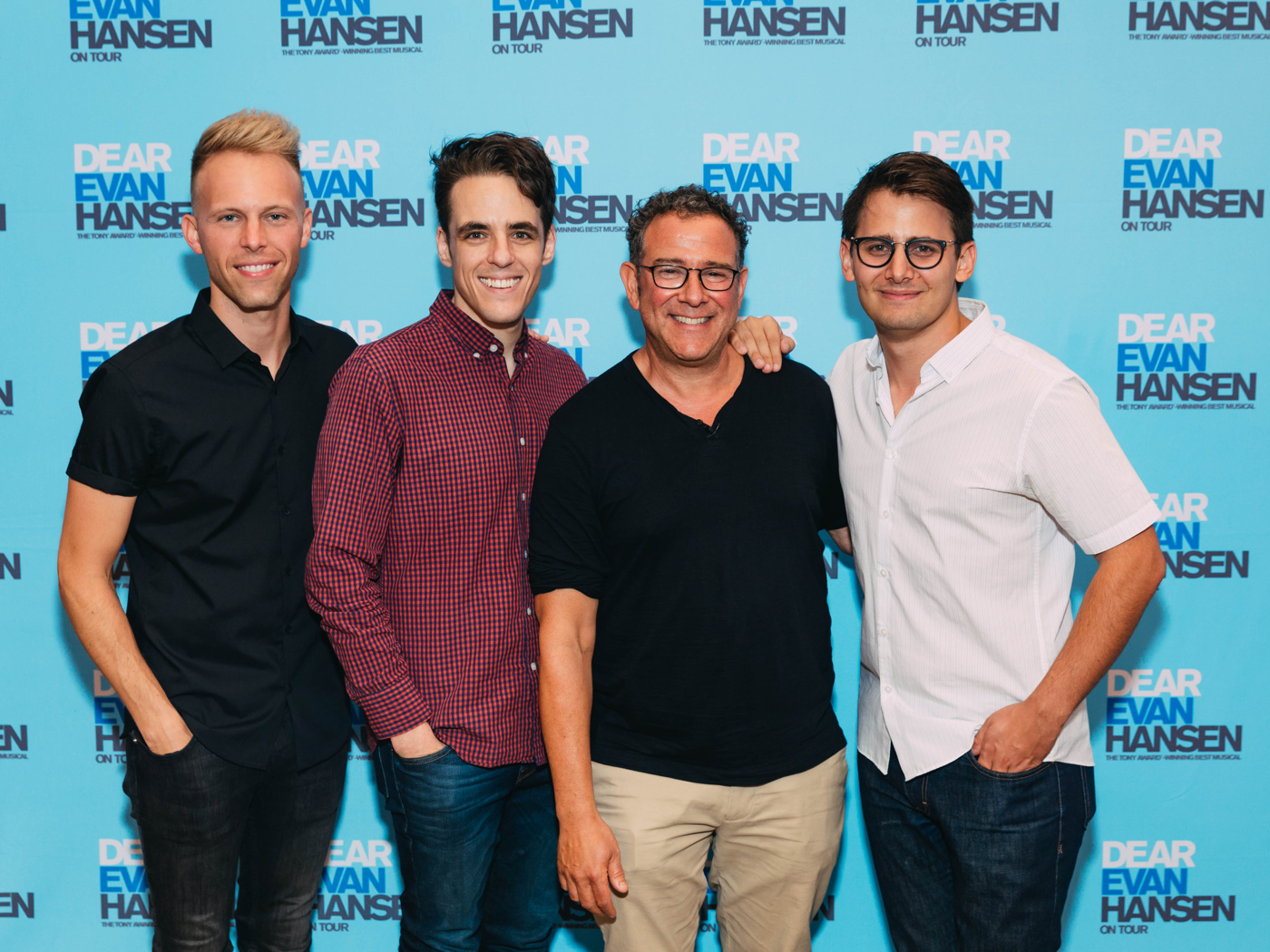Dear Evan Hansen Director Michael Greif on Bringing the Tony-Winning Musical to London

(Photo by Emilio Madrid for Broadway.com)
Michael Greif has shepherded Dear Evan Hansen successfully into port many times at this point, but only now is the 2017 Best Musical Tony Award winner being seen outside North America. Its West End debut opened November 19 at the Noel Coward Theatre, making an overnight star of its unknown English lead, Sam Tutty. Broadway.com caught the affable director, himself a four-time Tony nominee, during London previews to talk about his show’s transatlantic travel and catching the zeitgeist yet again, as he famously did before with Rent.
How has it been going so far at the Noel Coward Theatre?
[The show] seems to be playing very beautifully in front of an English audience, and that audience seems to be as completely engaged in the complicated and very moving family dynamics of the piece as they have been anywhere. It’s really enormously gratifying to feel that the impact of the story is communicating as beautifully and deeply as it has ever communicated.
How did you choose your Evan Hansen, newcomer Sam Tutty? [Marcus Harman is the alternate Evan.]
We saw a lot of people, and [casting director] Jill [Green] and her team saw exponentially a lot more people than got to us. It was a very thorough and exhaustive search, let me tell you. We saw Sam on tape and then in person and what was clear from him and many of the young actors we ended up with was an enormous emotional transparency—a willingness to go there, as well as an incredibly thorough, active investigation of every beat.

(Photo: Matthew Murphy)
What have you found now that Sam has been playing in front of an audience?
What I saw happen to Sam over our first week of performances was a tremendous confidence that has only increased as the audience becomes another scene partner. Now, it becomes about his taking ownership of the part and to see what the arc of the character is and also where he can conserve a bit. He already knew about navigating character; now he’s learning how to navigate performance.
Was it a conscious choice here not to bring over any of the American company, by contrast with your West End Rent, which retained several male leads from Broadway, including Adam Pascal and Anthony Rapp?
This was very much a group decision, but I will say that there was a real interest in creating a group that would all work together from the ground up; there was a real excitement about forming a new company who would all meet the material freshly.
Was it difficult, when casting, to get your prospective Evans away from merely imitating Ben Platt?
Well, how do I put this respectfully [laughs]: It was clear during auditions that a lot of people had been exposed to Ben’s performance and had a very strong sense of it, and so what we were really looking for was someone’s personal take on their anxiety. They did not need to come in with the tics and the looks that Ben so magnificently mastered over the course of many years.
Was that an unusual challenge?
I think what people sometimes forget is how organically Ben’s performance grew. He worked so subtly to get to a result that is now mostly recorded, but it had very deep origins. What we felt we needed to do [for London] was to make clear that [Ben’s] performance is easy to access, but our responsibility was to say to those auditioning that we need to see your version of this.

(Photo: Emilio Madrid)
Is it exciting to feel as if this might happen again with Sam? [This interview took place before Tutty opened to rave reviews.]
It’s enormously gratifying to know that the material is rich enough to really launch careers—even spectacular careers—and that these actors are being tested in particularly gratifying ways.
How did you end up with Lauren Ward as the lone American in an otherwise all-British cast? [She and Rupert Young play the Murphys.]
That was an incredibly fortuitous coincidence. I’ve been a fan of Lauren’s for over 20 years, dating back to Violet, in which she was remarkable, and, of course, I saw her in Matilda and whenever she would return to the States. So, I was thrilled when she showed up on the roster of people who were interested: it had more to do with her extraordinary talent than with her Americanness.
What have you found about the thematic of a show steeped in social media and truth-telling and all sorts of things that seem to reverberate anew every day?
Those aspects of the show have only deepened, I think. What we define as the truth is more fascinating and more important than ever, and that’s only increased in terms of import. Even in mid-2015, when we were working on the show pre-Trump, these issues were all very much part of our consciousness and they have only been given added weight in the years since.
Can you tell us if and when London will ever get Next to Normal, a musical you premiered on Broadway in 2009 that seems long-overdue for a British airing?
I don’t know the answer to that, but I’m very excited to have another crack at it this January in Washington, D.C . We’ll be working with an Encores-esque, very fast rehearsal process, and I’m just so pleased to be able to live in that world again.
Do you ever reflect on how many of your musicals have succeeded beyond all anticipation in capturing the zeitgeist, if you think of Rent, Next to Normal and Dear Evan Hansen all in different ways?
I feel honestly very fortunate but I also feel like, because it happened with Rent it may have something to do with the fact that I get better offers. I’m certainly smart enough to read something like Dear Evan Hansen and say, “Yes please, let me be involved,” and from those very early performances at Arena Stage in Washington [where the show began], we could just feel what the audience was getting out of it. They were hearing the piece on a very deep level.
Are you amazed—so far, anyway—to have got to this point in your musicals career without, for the most part, doing a jukebox show or adapting a film to the stage? [His 2003 Broadway entry Never Gonna Dance was based on the RKO film Swing Time.]
Well, I will say that I am involved in certain projects that do have familiar titles attached to them but I do find the way in which the writers have interpreted the material to be extremely original and vital. I’m not doing anything on Broadway in 2020, but I’ve got stuff coming up there in 2021 about which I'm very excited.